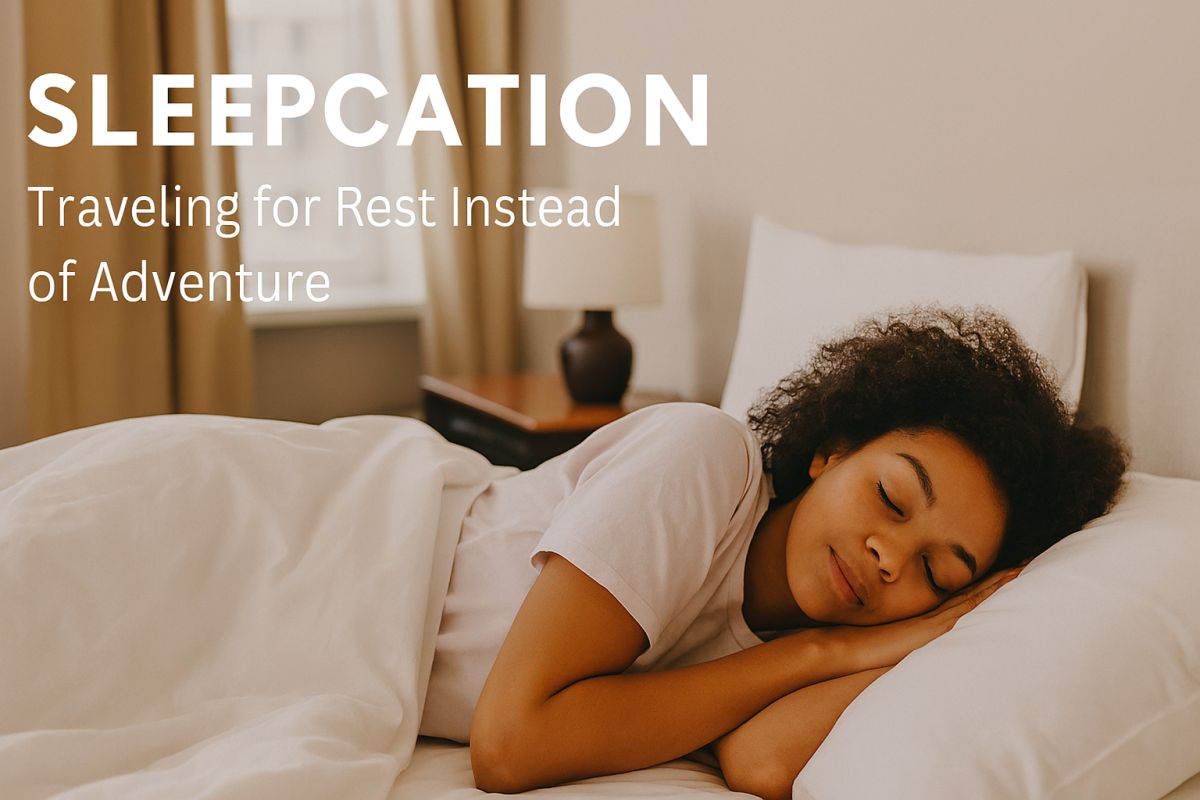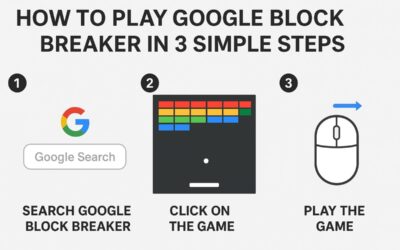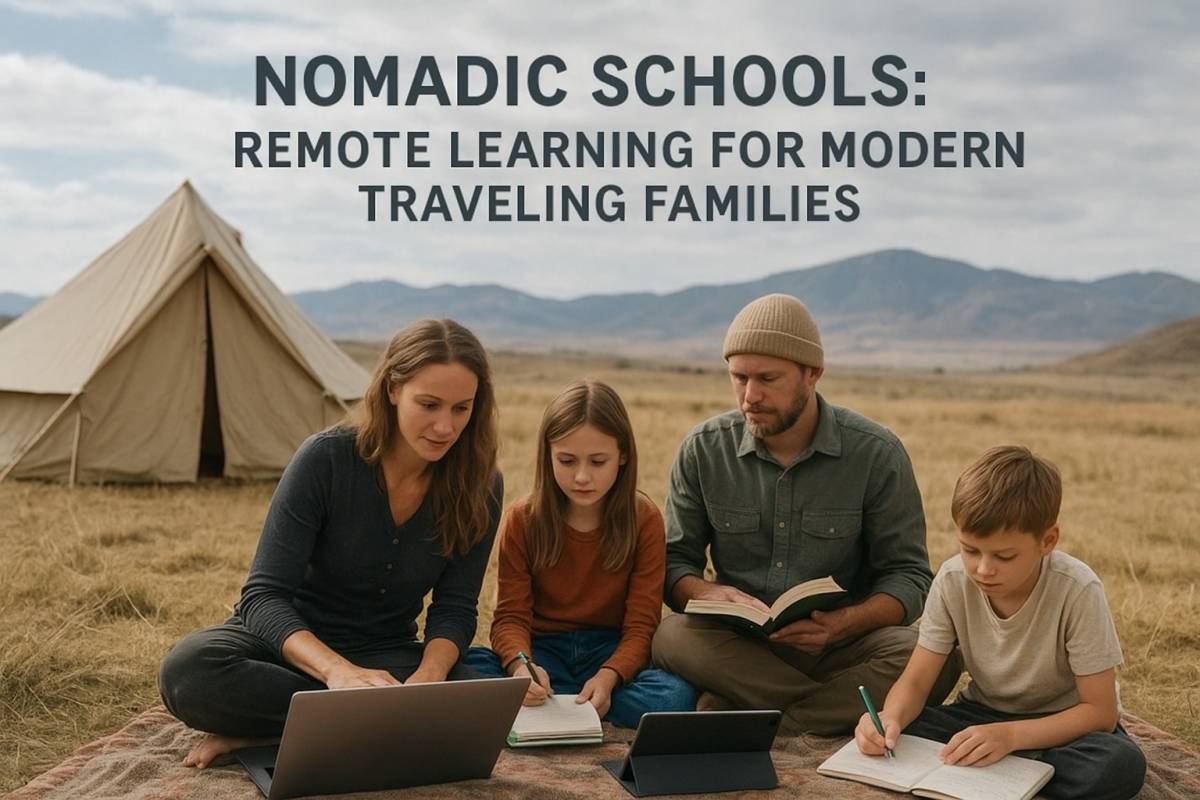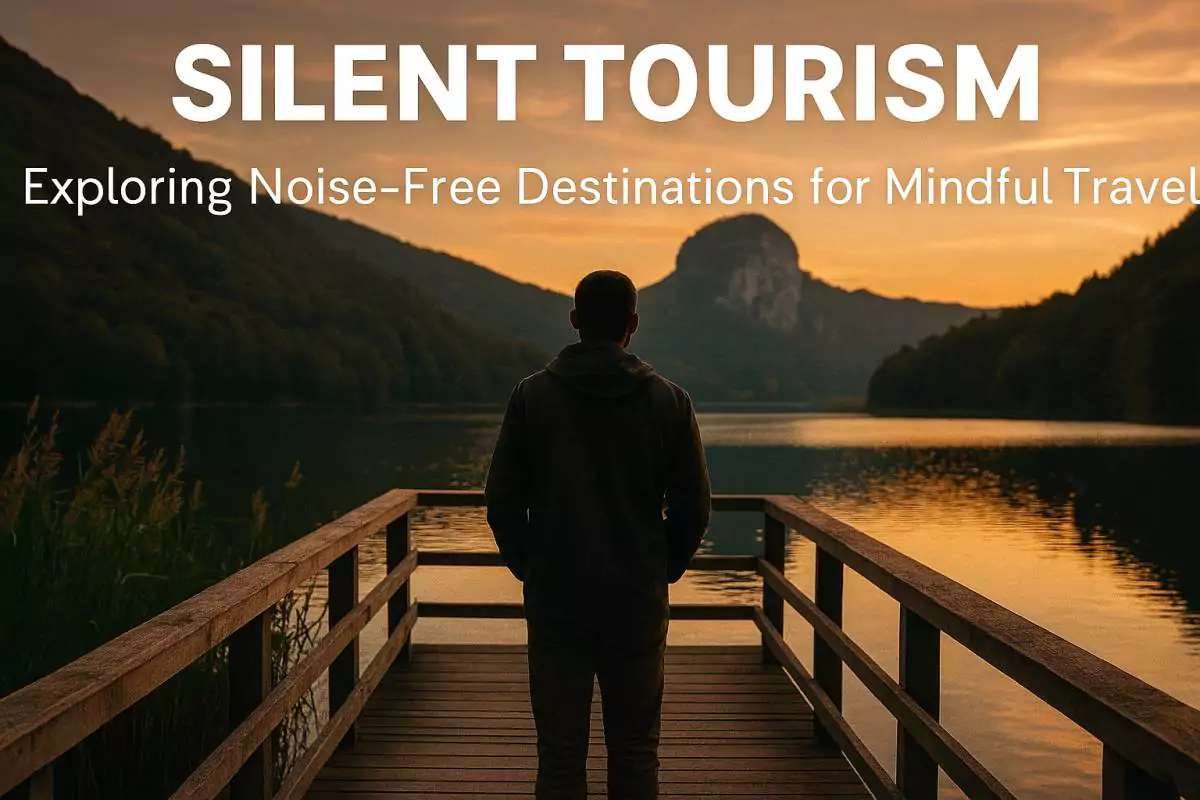Sleepcation: Traveling for Rest Instead of Adventure

A sleepcation is a travel trend where people take a trip not for sightseeing or adventure, but purely to rest, recharge, and enjoy uninterrupted sleep. Unlike traditional vacations filled with packed itineraries, sleepcations focus on slowing down, reducing stress, and improving mental and physical health through quality rest. This concept is gaining popularity among professionals, city dwellers, and wellness seekers who want to escape burnout and restore balance in their lives.
Why Sleepcations Are Becoming Popular
Modern life is busier than ever. Long work hours, constant digital distractions, and stressful environments leave people sleep-deprived. According to global studies, adults today get fewer hours of quality sleep compared to previous generations. This sleep deficit not only affects productivity but also contributes to anxiety, weight gain, weakened immunity, and mood swings.
That’s where sleepcations come in. Instead of spending vacation days rushing between tourist spots, travelers are booking quiet hotels, wellness retreats, and countryside escapes designed for deep relaxation. The idea is simple: check-in, slow down, sleep well, and return home refreshed.
The Core Idea of a Sleepcation
Unlike other travel styles, a sleepcation prioritizes:
- Uninterrupted rest – No alarms, no packed schedules.
- Digital detox – Limited or no phone and laptop use.
- Sleep-friendly environments – Soundproof rooms, blackout curtains, luxury bedding.
- Wellness support – Spa therapies, meditation, herbal teas, and guided relaxation.
It’s not about seeing more places, but about recharging your body and mind.
Benefits of Taking a Sleepcation
1. Improved Mental Health
Restful sleep reduces stress hormones like cortisol and helps calm anxiety. Many people return from sleepcations with better focus, emotional stability, and a more positive mindset.
2. Boosted Physical Recovery
Athletes, fitness enthusiasts, or those recovering from illness can benefit from restorative sleep to aid muscle repair and strengthen immunity.
3. Enhanced Productivity
A well-rested mind is sharper. After a sleepcation, people often notice improved problem-solving skills and creativity in their daily work.
4. Better Lifestyle Habits
Many sleepcations include wellness programs like yoga, meditation, and sleep coaching, which help travelers carry healthier routines back home.
Where to Take a Sleepcation
1. Wellness Hotels and Spas
Many luxury hotels now offer sleep packages with custom pillow menus, soundproofed rooms, and guided relaxation therapies. Examples include wellness resorts in Bali, Thailand, and Switzerland.
2. Countryside and Nature Retreats
Quiet cabins, forest lodges, or lakeside cottages provide natural soundscapes and fresh air—perfect for deep rest.
3. Urban Sleep Retreats
Some city hotels are reinventing themselves as “sleep sanctuaries” for business travelers needing downtime without leaving the city.
4. Specialized Sleep Clinics
For people with insomnia or chronic sleep disorders, some destinations offer medical sleep programs supervised by doctors and sleep experts.
How to Plan the Perfect Sleepcation
1. Choose the Right Destination
Pick a location that promotes calmness—away from noise, crowds, and pollution.
2. Prioritize Comfort Over Activities
Select accommodations with features like blackout curtains, ergonomic beds, and spa facilities instead of tourist attractions.
3. Disconnect from Technology
Leave work emails and social media behind. A digital detox helps the brain truly relax.
4. Build a Sleep Routine
Use your sleepcation to reset your body clock—go to bed early, avoid caffeine late in the day, and try mindfulness exercises before sleep.
5. Combine Sleep with Gentle Wellness
Add relaxing activities like slow yoga, aromatherapy, or nature walks to deepen your sense of calm.
Who Should Consider a Sleepcation?
- Overworked professionals feeling burnt out.
- Parents or caregivers who rarely get quiet time.
- People struggling with insomnia or irregular sleep patterns.
- Digital workers constantly glued to screens.
- Anyone seeking mental clarity and balance without the stress of traditional travel.
Sleepcation vs. Traditional Vacation
| Feature | Traditional Vacation | Sleepcation |
|---|---|---|
| Focus | Exploration, sightseeing | Rest, relaxation |
| Energy Level | Often tiring | Restorative |
| Activities | Tours, excursions | Sleeping, spa, meditation |
| Outcome | Memories & experiences | Renewed health & energy |
The Future of Sleep Tourism
The hospitality industry has noticed the rise of sleep tourism. Major hotel brands now design sleep-focused suites with circadian lighting, weighted blankets, and soundproof walls. Travel companies are promoting sleep packages alongside adventure trips. As mental health and wellness become central to lifestyle choices, sleepcations are expected to grow into a mainstream travel trend.
Final Thoughts
A sleepcation is more than a vacation – it’s a reset button for modern life. By prioritizing rest instead of rushing through itineraries, travelers return home healthier, calmer, and more energized. Whether it’s a weekend in a quiet countryside lodge or a week in a wellness resort, sleepcations remind us that true luxury is not just travel – it’s quality sleep.









